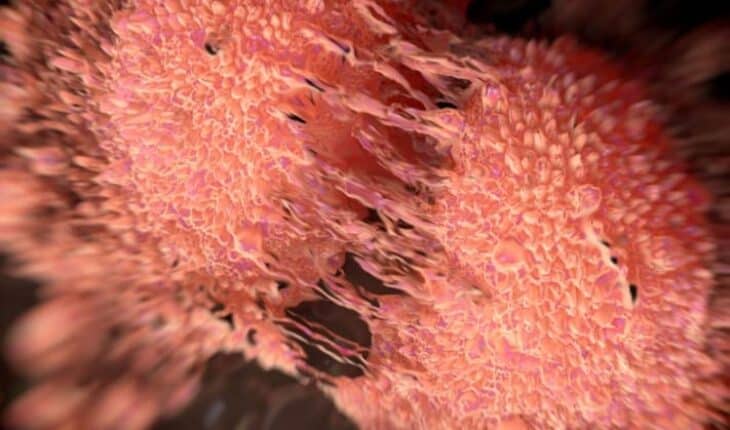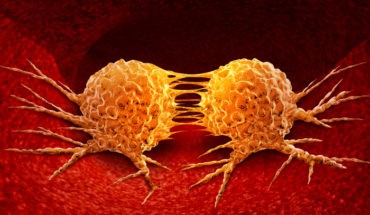New insight into combatting drug-resistant prostate cancer: New research from the University of Eastern Finland sheds light on the significance of the glucocorticoid receptor in drug-resistant prostate cancer, showing that the development of drug resistance could be prevented by limiting the activity of coregulator proteins.
Glucocorticoids regulate vital biological processes by affecting gene encoding through a DNA-binding transcription factor, namely the glucocorticoid receptor. The activity of the glucocorticoid receptor is made extensive use of in medicine because glucocorticoids have a strong anti-inflammatory effect. For this reason, synthetic glucocorticoids are one of the most prescribed drugs in the world. They are used to treat inflammatory diseases, such as rheumatoid arthritis, and as adjuvant therapy for cancer patients to alleviate the side effects of cancer therapy. In blood cancer, glucocorticoids are important drugs that limit the growth of cancer cells.
However, recent studies have shown that the glucocorticoid receptor also has an oncogenic, or cancer-promoting, effect in cancers like breast and prostate cancer. In prostate cancer, the glucocorticoid receptor can replace the activity of the androgen receptor, which is main oncogenic factor in this cancer, when its activity is inhibited by drug therapy. Thus, glucocorticoids help prostate cancer develop resistance to drug therapy.
“Due to these drug resistance and cancer-promoting effects, it is important to study how the glucocorticoid receptor functions on the cellular and molecular level in cancer,” Academy Research Fellow, Docent Ville Paakinaho of the University of Eastern Finland notes.
The Paakinaho Lab has published two recent genome-wide deep sequencing studies on the subject. The first, published in Nucleic Acids Research, explored how the glucocorticoid receptor replaces the androgen receptor on the molecular level.
“This study showed that the glucocorticoid receptor can only use regulatory regions that are already active in prostate cancer cells,” says Doctoral Researcher Laura Helminen of the University of Eastern Finland.
In other words, glucocorticoid receptor-mediated drug resistance emerges through these regulatory regions, and by affecting the activity of these areas, the harmful effects of glucocorticoids in prostate cancer could be prevented. Bioinformatics analyses indicated the pioneer transcription factor FOXA1 as one possible target. FOXA1 is known to have cancer-promoting properties, which is why the researchers assumed that inhibiting its activity would limit the development of glucocorticoid receptor-mediated drug-resistant prostate cancer. Surprisingly however, the effect was exactly the opposite: inhibiting the activity of FOXA1 further increased the activity of the glucocorticoid receptor – and the development of drug resistance.
This is because FOXA1 was found to be involved in the silencing of the glucocorticoid receptor gene, and this is what increased its activity when FOXA1 was inhibited.
“Research often reveals the unexpected, and that’s part of its charm,” Paakinaho says.
The activity of the glucocorticoid receptor in regulatory regions can, however, be influenced in drug-resistant prostate cancer through an alternative pathway. Coregulator proteins were identified as an alternative target through which the glucocorticoid receptor affects the regulation of gene expression. These proteins include EP300 and CREBBP. Several pharmaceutical companies are developing small-molecule inhibitors targeting these proteins, and some are already being studied in patients.
In another study by the Paakinaho Lab, the researchers explored ways to inhibit glucocorticoid receptor-mediated effects by inhibiting coregulator proteins. These findings were reported in Cellular and Molecular Life Sciences.
“Silencing the EP300 and CREBBP proteins with a small-molecule inhibitor clearly prevented the activity of the glucocorticoid receptor in prostate cancer cells,” Project Researcher Jasmin Huttunen of the University of Eastern Finland says.
This allowed the growth of drug-resistant prostate cancer cells to be inhibited. Furthermore, the researchers found that silencing EP300 and CREBBP also effectively inhibited the activity of the androgen receptor especially in prostate cancer cells that have an amplification of the androgen receptor gene. This amplification is found in up to half of patients with advanced prostate cancer.
Surprisingly, the EP300 and CREBBP inhibitor also inhibited the activity of FOXA1, while still preserving its ability to silence the expression of the glucocorticoid receptor gene. By using the EP300 and CREBBP inhibitor, it was possible to block the activity of FOXA1 without the development of glucocorticoid receptor-mediated drug resistance. Ultimately, inhibiting the activity of both the androgen and the glucocorticoid receptor was found to be primarily due to the limitation of FOXA1 activity. The study suggests that treatment targeting coregulator proteins could also be effective in untreated prostate cancer.
The studies were funded by the Research Council of Finland, the Sigrid Jusélius Foundation, and the Cancer Foundation Finland.
Website of the Paakinaho Lab: https://uefconnect.uef.fi/en/group/transcription-factor-crosstalk-in-cancers-paakinaho-lab/
Research articles:
Helminen L, Huttunen J, Tulonen M, Aaltonen N, Niskanen EA, Palvimo JJ, Paakinaho V. Chromatin accessibility and pioneer factor FOXA1 restrict glucocorticoid receptor action in prostate cancer. Nucleic Acids Res. 2024 Jan 25;52(2):625-642. https://doi.org/10.1093/nar/gkad1126
Huttunen J, Aaltonen N, Helminen L, Rilla K, Paakinaho V. EP300/CREBBP acetyltransferase inhibition limits steroid receptor and FOXA1 signaling in prostate cancer cells. Cell Mol Life Sci. 2024 Apr 2;81(1):160. https://doi.org/10.1007/s00018-024-05209-z
- Early onset dementia more common than previously reported - 26th July 2024
- Children’s Exposome Linked to Serum Metabolite Changes - 24th July 2024
- Is Melatonin the wonder drug of anti-aging? - 22nd July 2024






